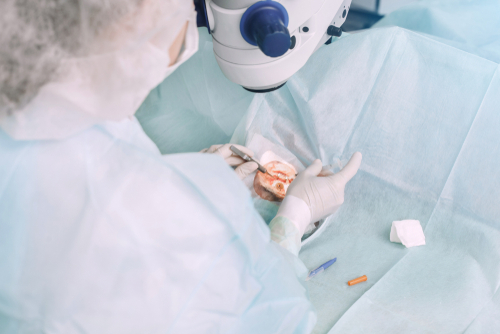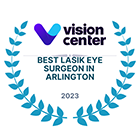
Penetrating keratoplasty (PKP) is a corneal transplant. It is the most commonly-performed transplantation procedure in the world, and involves the replacement of a damaged cornea with a healthy one from a donor. The goal of the procedure is to improve patients' visual activity. Though the procedure is relatively common compared to other transplantation surgeries, it is only appropriate in extreme cases. Read on to learn more about penetrating keratoplasty!
How does the procedure work?
The surgery takes place in an outpatient surgical center. There, a certified eye surgeon, like Dr. Silk, and his team will ensure that the donor cornea is ready to be transplanted. Then, the eye of the patient, who receives anesthesia and a sedative, is prepared for the surgery. Once all preparations are complete and the surgical team can safely proceed, the patient's damaged cornea is removed and replaced by the donor tissue. Sutures hold the new cornea in place. Following the procedure, patients may recover normal vision within six to 12 months. While, as with any major surgery, there are some risks, including tissue rejection and infection, PKP is a relatively safe procedure, with a 90% success rate.
Why is a corneal transplant performed?
Penetrating keratoplasty is performed for a variety of reasons, related to various conditions that are suffered by patients. Often, the goal of the procedure is optical, intended to improve the vision of patients. It can also be a reconstructive procedure to correct the anatomy of the eye following a perforation or other disruption. Finally, the transplant could be performed for therapeutic reasons, to remove unhealthy or infected tissue to ensure that inflammation does not spread.
Because there are so many reasons for which penetrating keratoplasty could be performed, it can be difficult to understand the procedure. If you have any questions about the procedure, or about anything else related to your optical health, contact Silk Vision & Surgical Center.











.png)
